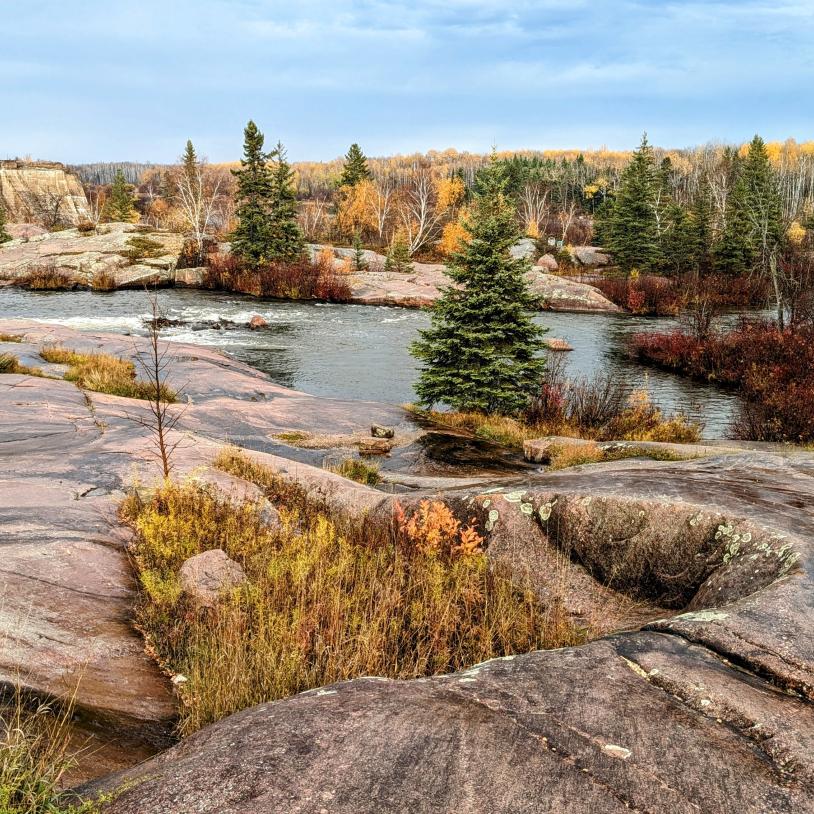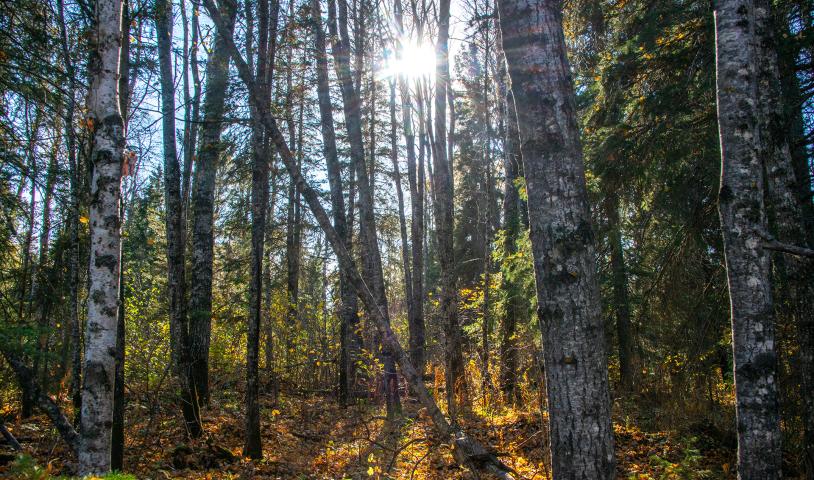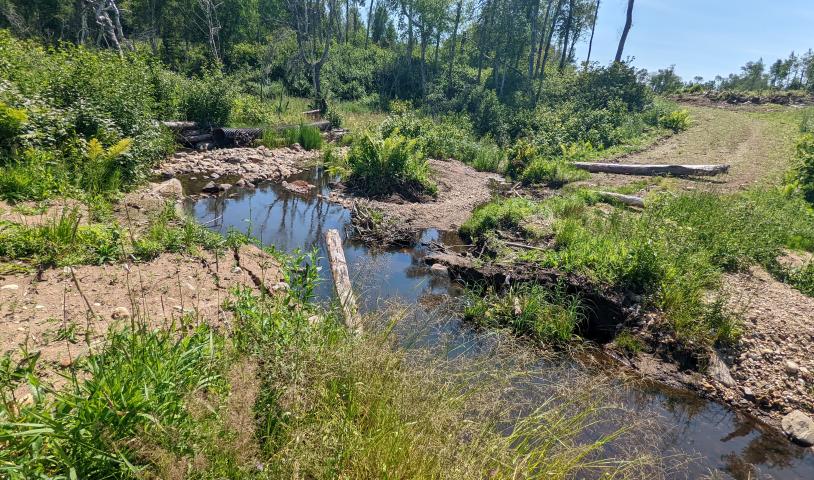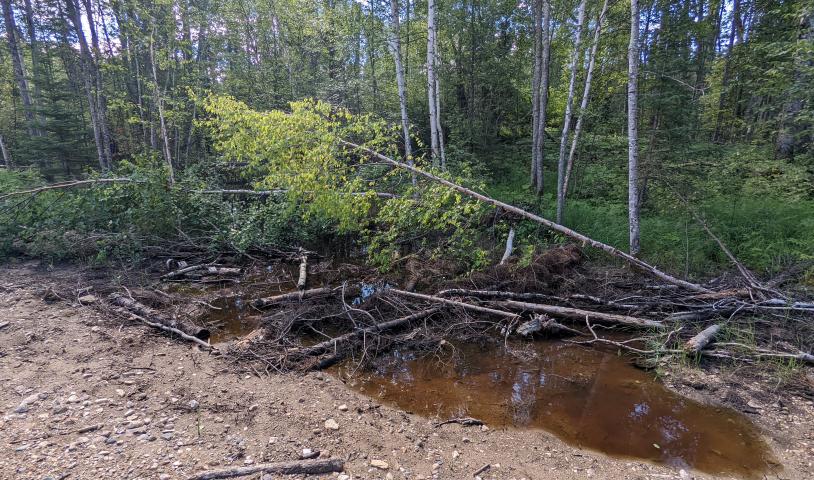Manitoba's own mining mess wreaks havoc on our parks
Thursday, August 28, 2014Winnipeg Free Press
By Eric Reder
August 15, 2014
For many Canadians, the mention of mining may not cause concern. Yet a catastrophe such as the one unfolding at Imperial Metal's Mount Polley mine in B.C. raises serious questions. On Aug. 4, 2014, approximately 10 billion litres of waste water and five billion litres of tailings waste escaped the dam at the gold and copper mine, polluting creeks, tributaries, lakes and the local watershed, and important fish habitat of salmon and rainbow trout. The ongoing saga of the Mount Polley tailings-pond breach gives us cause to reflect on the effects of mining in Manitoba.
At Grass River Provincial Park, the Wilderness Committee recently reported the discovery of a contaminated mess at the old Spruce Point copper mine site. It's decades old -- shut down in 1993 -- and both the Manitoba government and Hudbay Minerals, the company that operated the mine, claim the site is fine. However, an independent lab analyzed the water at Spruce Point and found it loaded with high concentrations of toxic heavy metals including copper and iron. And the Spruce Point mine operated for just five years.
It's not just mining that has destructive effects, but also the activities associated with mineral exploration. Walking through Nopiming Provincial Park, I come across the effects of mineral exploration on a regular basis -- bulldozed trails running for kilometres through previously intact forest, trenches with a mess of exposed rock creating acid rock drainage, drill holes oozing water that kills all the vegetation around it. This is industrial activity that leaves a scar.
Provincial parks are put in place for the protection of natural lands and waters and the quality of life of Manitobans. Parks preserve biological diversity. And biodiversity is the functioning natural ecosystems that mitigate our climate, provide fresh water and clean our air.
Yet the Manitoba government still allows mining companies to claim land in provincial parks. There are over 750 claims in 13 of Manitoba's provincial parks, including Whiteshell, Nopiming, and Grass River.
Despite local, national and international controversy around the effects of mining, in 2013 the Manitoba government authorized the first new mine in a park in more than two decades -- Hudbay's Reed Mine, also in Grass River Provincial Park. Operation of this mine involves millions of litres of water drawn from our park, and millions of tonnes of waste rock. Add this to the fact that it is situated in critical woodland caribou habitat -- an endangered species that requires protection of its habitat both federally and provincially and it raises the question as to what the government was thinking when it authorized another mine in a park. The same company left a toxic mess at the Spruce Point Mine site the last time they operated a mine in this park. A new tailings pond sits upstream of the Grass River and Reed Lake, and constant truck traffic to and from the mine has turned this region into an industrial park. The new mine is already having a serious effect on the ecology of Grass River Park, and yet the development is also only going to operate for five years, providing very limited, short-term economic benefit.
Provincial parks in Manitoba -- all designated after 1961 -- were often established over old mining areas, where industrial roads allowed access to beautiful country filled with clear lakes and forested ridges.
These same mining areas have been subject to mining exploration for a century, and after 100 years of exploration, only a few mines have opened and closed during the parks era.
Perhaps it is time to shelve the idea that all the provincial park mining exploration will find an ore body, which will in turn start a new mine that provides decades of employment and economic benefit. Because there are consequences of mining activity.
All around the world, we are seeing record droughts and record floods, record heat and record cold, and extreme storms. We are seeing the loss of species, which really means the loss of biological diversity. On the Manitoba government website is a Frank Egler quote, aptly describing our parks: "Ecosystems are not more complex than we think, they are more complex than we can think."
What we need right now are healthy, intact ecosystems. And this nature, this wilderness, is what our parks are in place to preserve.
We don't want another Mount Polley disaster, and we don't want another Spruce Point mine site mess. We need to counter the loss of wild and nature. And we don't do that by allowing some corporation to bulldoze through our wild and nature, drilling and polluting the water in our parks. We do it by ending park mining, and ending mineral exploration in parks, and protecting the nature and wild that parks encompass. The case for doing this now is easily made.
Photo: This 1999 photo shows the polluted site of the old copper mine in Sherridon, Man., and the copper tailings left behind. (FRED GREENSLADE / WINNIPEG FREE PRESS FILES)





